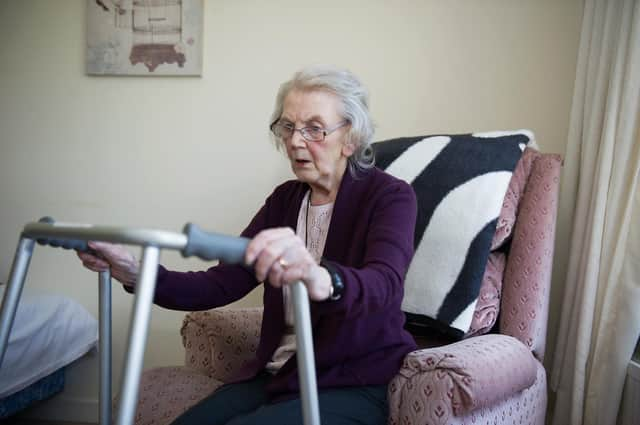West Lothian warning that care service would create army of desk jobs


The concerns have been raised as part of West Lothian Council’s Integrated Joint Board (IJB) response to the National Care Service consultation.
In a three-page covering letter to Humza Yousaf, the cabinet secretary for Health and Social Care, the board welcomed a promise of a 25 per cent increase in funding – but also asked blunt questions about local involvement and finance.
Advertisement
Hide AdAdvertisement
Hide AdIt is proposed that new Community Health and Social Care boards (CHSCB) would be responsible for hiring staff and commissioning work.
The letter to the minister, signed by Bill McQueen, the IJB chair, said these new boards would require chief finance officers and finance teams to undertake financial planning.
He added: “We note the consequence that 32 additional highly qualified officials will be needed.”
At the same time, “there is also a risk of creating competition within the job market, with councils, health boards and CHSCBs all recruiting from the same pool, and for which the supply of suitably experienced staff may be limited”.
Advertisement
Hide AdAdvertisement
Hide AdMr McQueen added: “It is unclear from the consultation document what the real value would be of the CHSCB directly employing staff rather than building on existing arrangements or how the required investment in infrastructure that already exists within local authorities and the NHS would represent best value.”
The IJB is also concerned that the partnership experience built up and the work done already to integrate health and care could be swept away in the drive to create a new service.
The letter added: “It will be very important that the reforms ultimately enacted do not lose the benefits which the existing landscape of integration has brought about, and the good working relationships which have evolved as part of it,” stated the covering letter.
In its response to the hefty questionnaire the IJB also strongly opposed the idea of a national service of Justice Social Work and drug and alcohol treatment.
Advertisement
Hide AdAdvertisement
Hide AdThe board said: “The key partnerships that are required to deliver successful and efficient Justice Social Work Services operate at a local level, aligned to local authorities. These arrangements enable all local partners from statutory, independent and third sector to come together to develop plan and design services that meet locally identified needs.”
And on drug and alcohol treatment it said: “It is our view that an Alcohol and Drugs Partnership grouping within a locality is still required as Alcohol and Drugs Harm is wider than just a health and social care concern and requires a wider partnership multi agency response to this public health issue.”
It added: “Taking away local and democratic responsibility and accountability for these services. This has the potential to impact joined-up working across other key service areas as such as housing, employability, education and public protection.”